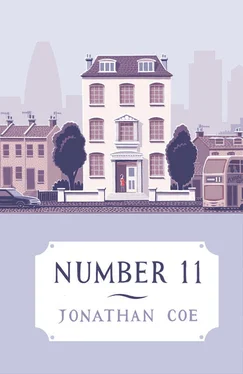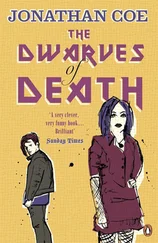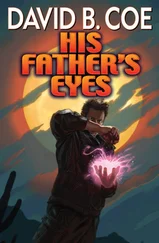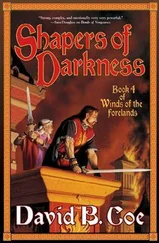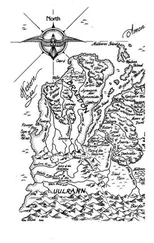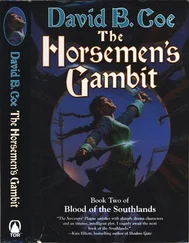‘What do you mean?’ Lucinda asked.
‘What you said,’ he repeated, addressing Caroline now, ‘was perfectly right. I don’t mean your comments about the economy, although I don’t disagree with you there, exactly. But I’m referring to your choice of words. You said “Essentially”. Which, of course, is the correct form of expression.’
Caroline was glancing in puzzlement at Lucinda, as if silently to enquire whether her peculiar friend usually carried on in this way.
‘You’re not making yourself very clear,’ said Lucinda, trying to put it tactfully.
‘I’m sorry. This is the way it is, when you’ve got your teeth into the meat of a case. You forget how to communicate properly. I’ve been holed up in my flat for days, reading and reading and reading. It’s just that the last thing I read — I’ve realized now that there was something a bit odd about it. A quirk of expression. Whenever he meant “essential” or “essentially”, the writer put “quintessential” instead. I’m sure there’s nothing in it. But you can’t help noticing these things, you see. Your brain starts to fixate on little details and … well, you start to go a bit mad, to tell the truth. Forget I ever mentioned it.’ Lucinda was staring at him, her eyes getting rounder and rounder. He wanted to dive into them and drown. ‘What I really meant to ask you,’ he stammered on, ‘was — I mentioned the cinema, and I was walking past it only a few minutes ago when I noticed —’
But once again, Nathan never managed to get any further with his invitation. This time it was the ringing of his mobile phone that interrupted him.
‘Aren’t you going to answer it?’ Lucinda asked.
‘No. Not until I’ve —’ But then, unable to resist glancing at the screen, he realized who was calling. ‘Actually, yes. I’d better take this. Sorry.’
He withdrew to a corner of the hall and cupped the iPhone to his ear.
‘Hello? DCI Capes?’
‘Afternoon, Pilbeam. Glad I caught you. Is this a good moment to talk?’
‘Of course. What is it? Have there been … developments?’
‘Not yet. But I’m pretty sure there will be, very soon. Tell me, Pilbeam, have you heard of the Winshaw Prize?’
‘Yes, of course.’
‘Then you know that this year’s winner is going to be announced next week. The ceremony’s up in Birmingham. Well, Josephine is pretty much the only surviving member of the family, as you know, so she’s going to be there. So is Sir Peter. But get this … who do you suppose is the celebrity they’ve chosen to present it, this year? None other than — our good friend Mr Quirky. And he won’t just be in the same room as them, but sitting right next door. I’ve seen the seating plan, you see. They’re on table 12. Quirky will be on number 11.’
Nathan let out a whistle of alarm. ‘An explosive situation,’ he said.
‘I know, but don’t worry. We’re going to be there in force. And the reason I’m calling — well, as the person who brought all this to my attention, I think you should be there.’
‘But … but, sir, this is such an honour.’
‘Never mind honour, Pilbeam. I could do with your input. The dinner is on Tuesday week. Don’t worry, I’ll clear everything with your station, and make sure you get off for the night.’
‘Thank you, sir. This is … This is a big step for me.’ And then, out of the corner of his eye, he caught a glimpse of Lucinda. Watching her walk from one end of the hall to the other, her lustrous (he assumed) blonde hair pulled back more uncompromisingly than ever, her slender (he imagined) arms filled with cans of baked beans, tomato soup and spaghetti hoops, he felt himself propelled forward by waves of lust. ‘There’s just … There’s just one thing, sir. If I might make a small … official request?’
‘Of course, Pilbeam. What’s on your mind?’
‘I was just wondering: would it be all right if I bring a date?’
The Winshaw Prize, by now established as the most prestigious and valuable in the country, was named in honour of Roderick Winshaw, the famous art curator, who had died on the terrible night of 16 January 1991, in the massacre which had also claimed five other members of his family.
A few months after Roderick’s death, once the shock waves it sent throughout the art world had partially subsided, a committee of friends and admirers gathered to discuss how the great man’s memory might be preserved. A prize was the obvious solution. But there was already a major art prize, the Turner. How could this new prize distinguish itself from its competitors?
A steering committee was set up, under the chairmanship of Giles Trending, the highly successful director of Stercus Television and owner of the Recktall Brown Gallery in Shoreditch. His first notion was that the Winshaw Prize should be the ne plus ultra of cultural accolades, and as such should be open not just to paintings, sculptures, videos and installations, but to novels, films, poems, ballets, operas, pop songs and even advertising campaigns. Pretty much everything, in other words. The fact that none of these things could be sensibly compared with each other would be precisely the point.
At this proposal, the eyes of the other committee members had lit up with excitement, and after many hours’ enthusiastic discussion, it was decided that the Winshaw Prize, in its first year, should be encumbered with absolutely no rules and no boundaries. Accordingly, the shortlisted entries for that year consisted of a book of short stories, a hip-hop single, a video of an artist writing anticapitalist slogans in letters made out of his own snot, a new strain of apple created by a fruit farmer in Herefordshire and the giraffe enclosure at Chester Zoo. This policy was continued for some time, culminating in the notorious edition of 2001, when the prize was awarded to ‘the distinctive smell you get when you visit your grandmother’s house and open a biscuit tin which has been empty for five years’.
The steering committee, however, became ever more aware that the prize had failed to capture the public imagination. It proved too challenging to interest the media in a prize which, every year, was awarded to a mere abstraction. Despite the best efforts of Pott Bellinger, the PR firm engaged to publicize it, the Winshaw Prize was far outstripped, in terms of column inches and front-page splashes, by the Booker, the Turner, the Baileys, the Costa, the Brits, the BP Portrait Award, the Carnegie Medal, the Rear of the Year and countless others. It was while contemplating this list of more successful rivals, one melancholy morning, that Trending had his second great idea. Of course! How could he have not seen it before? Later that week he gathered the other committee members for an Extraordinary Special Meeting and presented them with his proposal:
‘This prize,’ he argued, ‘is meant to commemorate Roderick Winshaw and, by extension, the whole of his family. Now, when we think of the Winshaws, what do we think of? What did they believe in, above all? The answer, of course, is competition. Competition between individuals, between companies, between nations. Competition, that is, in the sense of a fight to the death. Winner takes all, loser gets nothing. And what is an artistic prize but the very distillation of this idea — and a perfect poke in the eye to all those sentimentalists who still believe that artistic creation is some sort of haven from competition. There is no such haven, in this day and age! No one believes any more that the arts world is some sort of socialist utopia, in which different creative spirits work on their different projects side by side, in parallel and in sympathy. Things have changed, as they have everywhere else! It’s a free marketplace now. Survival of the fittest, and extinction for everyone else. So let’s put artist in competition with artist, let’s set writer against writer and musician against musician. Let envy, rivalry, economic uncertainty and status anxiety be the new spurs to creativity! What we need to create, by rebooting the Winshaw Prize, is a sort of über-prize . The ultimate prize. The prize to end all prizes. Do you see what I mean, ladies and gentlemen? Do you understand what I have in mind?’
Читать дальше
